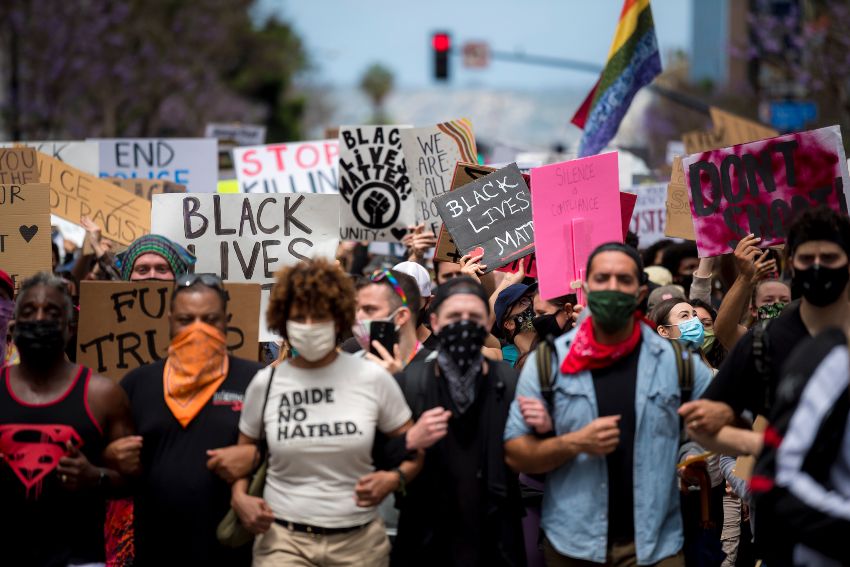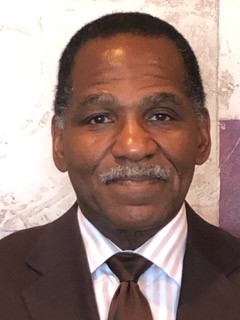25 September 2020
Know Your Rights: The Fight For Social Change
By Felicia Campbell
[4 minute read]
 Photo: Erik Jepsen
Photo: Erik Jepsen
Born and raised in South Central Los Angeles, Duane E. Bennett has both litigated civil rights cases against law enforcement agencies and defended law enforcement agencies accused of civil rights violations. It all started with his own near-death experience at the hands of the police.
"At an early age I became interested in ethnic disparities in my neighborhood compared to others, and recognized that things were much worse for African Americans," explained the UC San Diego Extension instructor and long-time lawyer. "I recognized education as a way of progress and becoming an attorney as a method of social change. If nothing else, becoming an attorney empowered me to affect the conditions affecting me and my family."
Bennett believes it is vital to have a solid knowledge of the law when it comes to civil rights and social justice activism, which was the topic of a course within Extension's paralegal program on Civil Rights Leadership. The department host topical courses each quarter aimed at bringing the law to life as part of the Paralegal program.
"Civil rights laws serve to constrain the power of the government in an effort to achieve equal protection, due process and freedom," he explained. But knowing the law is not always protection enough.
 After graduating from UC Santa Barbara and UC Davis Law School, Bennett became a prosecutor for the County of Riverside. Then he was falsely arrested.
After graduating from UC Santa Barbara and UC Davis Law School, Bennett became a prosecutor for the County of Riverside. Then he was falsely arrested.
"Even though I was a prosecutor and had violated no laws, I was arrested, held at gunpoint by approximately six officers, handcuffed and thrown to the ground simply because I was driving while Black in South Los Angeles," he said. "A gun shoved to the back of my head; I thought I would die. Thankfully, I lived to tell the story, which is more than I can say for many other African Americans who were not so fortunate."
He points to his own experience when discussing law enforcement abuse of force cases.
"I often tell people, 'my life did not matter,'" he said, referring to the Black Lives Matter (BLM) activist movement. The harrowing experience inspired Bennett to begin working with law enforcement and local government as a Police Legal Advisor for the Santa Ana Police Department, City Attorney for Oceanside and General Counsel for the Port of San Diego.
"In all of these capacities, I represented police agencies in every manner of civil law enforcement actions. This experience made me keenly aware of the civil rights practice and litigation, particularly when police use escalated force, or where officer-involved shootings/deaths occur."
Bennett has also been involved in civil rights cases against police departments, including the infamous Rodney King v. City of Los Angeles case. "In my estimation, the Rodney King matter in 1991 was the first real BLM case. It was a pivotal case in civil rights history, and, for the first time, I saw the other side of a police civil rights lawsuit. The experience working on this case provided me with a unique perspective in regards to civil rights litigation."
The Civil Rights Leadership class draws on Bennett's unique professional background and his passion for equality and justice. We asked him to discuss the legal implication of case studies ranging from Rodney King to George Floyd and Breonna Taylor, as well as other contemporary movements like #MeToo, housing discrimination and the litigation strategies that can be used to address them.
"As an African American attorney, I am always disturbed when I observe racism, discrimination and mistreatment of people," he said. "The importance of civil rights statutes, due process, and equal protection in eradicating racism, discrimination, and inequality cannot be overstated."
Bennett's course offers insights into current social justice movements and how they fit into Constitutional Amendments. He addresses a few key points here:
- Black Lives Matter: The Fourth Amendment guarantees each citizen the right to be free from "unreasonable search and seizure" or warrantless searches except under emergency circumstances. The use of excessive force is considered to be an "unreasonable seizure" under the law.
- #MeToo Movement: Equal employment prohibits employment discrimination on the basis of race/ethnicity, gender, sexual orientation, nationality or religion. The creation of a "hostile work environment" and sexual harassment are forms of gender discrimination.
- Protests: The First Amendment protects the rights of protestors, or the right to peacefully address the government. It is important to note that the government can restrict certain rights of protesters based on the timing of gatherings, locations and unlawful behavior.